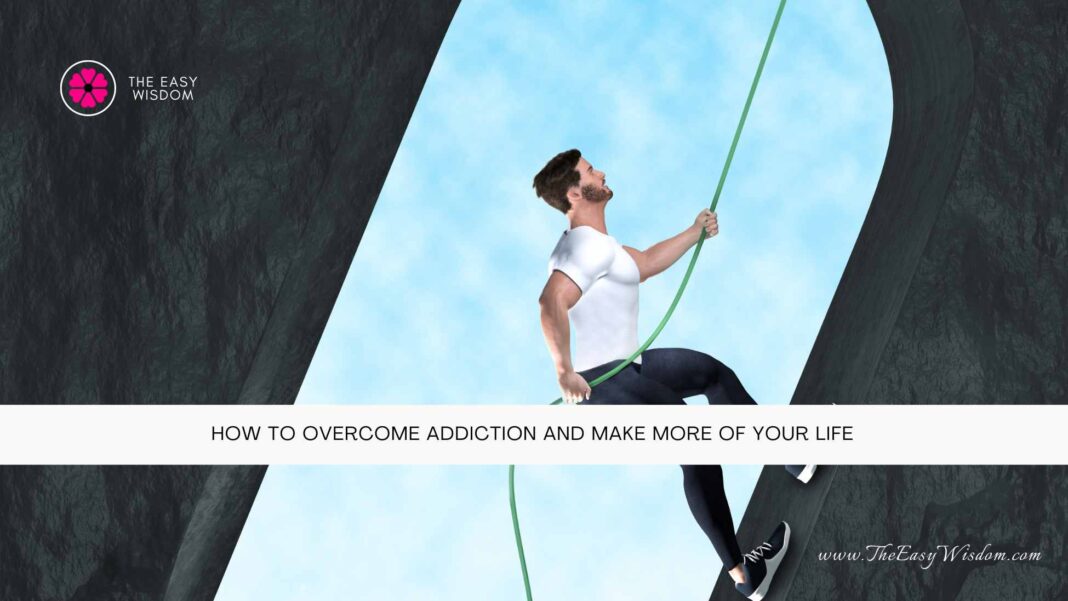Overcoming addiction is a multi-faceted journey that extends beyond the physical cessation of substance use. It requires a deep understanding of the psychological underpinnings, the creation of robust support networks, and the development of new, healthy habits, as well as strategies to prevent and navigate relapse. Leveraging these steps leads to a successful recovery and can also enhance the overall quality of life. Below, we explore the critical aspects of overcoming addiction and how they contribute to a more fulfilling existence.
Understanding the Psychology of Addiction
Comprehending addiction begins with acknowledging its psychological aspects. Addiction is not merely a physical dependence but also an intricate interplay of emotional and mental patterns. The brain’s reward system becomes intertwined with the substance or behavior, creating a cycle that’s difficult to break. This complexity necessitates a nuanced approach to treatment, one that addresses the underlying psychological factors.
Therapy plays a pivotal role in addiction treatment by helping individuals identify the root causes of their dependency. Cognitive-behavioral therapy, for example, can assist in recognizing and altering harmful thought patterns. This process paves the way for the healing of emotional wounds and helps to prevent future substance use.
Acknowledging the need for professional help is a significant step toward recovery. Places such as the drug and alcohol rehab center in Palm Springs provide a safe environment to address both the psychological and physical facets of addiction. With the right support and treatment program, the journey toward recovery can lead to lasting change and a better future.
Developing Healthy Habits to Replace Addictive Behaviors
Life after addiction involves more than the absence of substance use; it entails the presence of new, constructive habits. These positive behaviors serve as the foundation for a life defined not by past addictions but by current actions that promote well-being.
Part of establishing healthy habits is creating a conducive environment for recovery. This could involve setting up a home gym, dedicating a space for meditation or art, or investing in resources that support a new business venture. For instance, finding the right Chicago restaurant equipment for sale could be the cornerstone for an aspiring restaurateur in recovery seeking to channel their passion into a thriving business. Stores that sell restaurant supplies and kitchen equipment will offer the best prices for equipment.
Building a routine filled with healthier choices can start with simple acts like adopting regular exercise, engaging in hobbies, or pursuing new educational or career opportunities. Such activities do not just fill the time previously occupied by addictive behaviors; they provide purpose, joy, and fulfillment that permeate through all areas of life.
Navigating Relapse: Strategies for Sustaining Recovery
Recovery from addiction is not a linear process, and relapse is a common occurrence that one must be prepared to face. Understanding that relapse can be part of the journey rather than a failure is crucial for maintaining resilience and the will to continue progressing.
Effective strategies for dealing with relapses involve preemptive planning. This includes identifying potential triggers, having a support system in place, and knowing the steps to take when faced with the temptation to revert to old habits. Education on coping strategies is also indispensable in preparing for these situations.
After a relapse, it is imperative to seek help immediately. This can involve reconnecting with a therapist, attending support group meetings, or revisiting treatment programs. The critical factor is to act swiftly and not allow the relapse to undermine the progress made.
Leveraging Success in Recovery to Enhance Overall Life Quality
Success in recovery can reverberate through all aspects of life, manifesting as improved relationships, better physical health, and enhanced mental clarity. This translates into a renewed capability to experience life’s fullness without the crutch of addictive substances or behaviors.
By embracing a newfound freedom, individuals in recovery can explore pursuits that were once obscured by the fog of addiction. This might include travel, educational endeavors, or entrepreneurial ambitions—all enriching experiences contributing to a sense of achievement and self-worth.
Fulfillment in recovery also comes with the empowerment to help others who are on similar paths. Sharing experiences and offering support can be deeply rewarding, creating purpose and deepening the commitment to one’s own sobriety.
Altogether, the endeavor to overcome addiction is a testament to human resilience and the desire for a better life. By approaching recovery with determination, support, and adaptable strategies, individuals can transform their lives and discover a richer, more rewarding existence post-addiction.




